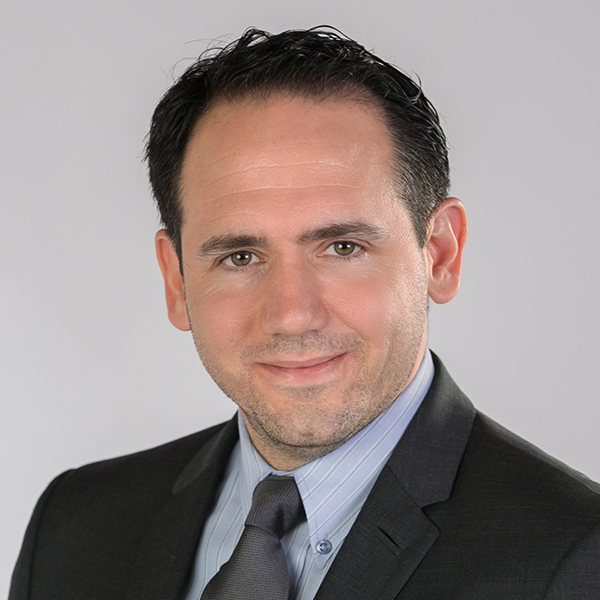The legal profession is uniquely placed to be part of the solution

Every right has a corresponding responsibility. In these challenging times, we mustn't forget this fundamental concept because it is critical, especially in situations where the rights of some are being used to affect or limit the rights of others adversely.
It seems we have lost our ability to separate the people from the problems, to respect each other, to have different opinions and to work together, rather than against each other, in dealing with the challenges at home and around the world. As legal professionals, we need to take charge and set an example for others.
Before I continue, I need to confirm that I am writing this from a position of privilege. I was privileged to grow up as an immigrant in Toronto's Jane and Finch area. I established solid friendships with people from different cultures, colours, and religious backgrounds. I also played sports in teams that were as diverse as the community I grew up in. I witnessed and experienced firsthand how people from diverse backgrounds came together as a team, respected each other’s differences, and supported each other to achieve great success.
Growing up, I was witness to a bitter conflict between my country of birth, Argentina, and England regarding the Falklands (Las Malvinas) – but I never allowed what happened then to affect my ability to form friendships, work together, and respect those individuals from British backgrounds here in Canada. I can sincerely say that some of my best friends and relationships were and are with people from British backgrounds. It would never occur to me to celebrate or parade in support of anyone attacking England or fellow English people across the world. This line of action would be ethically and morally repugnant, regardless of what historical wrongs existed or I believe existed. In today’s socio-political climate, we need to be better, do better, and set an example for the next generation that regardless of our differences, we have more in common than that which divides us.
I am and have always been a big advocate of diversity and inclusion. I marched decades ago in Pride parades in Toronto because I felt it reprehensible that people were denied the right to marry someone, denied the right to health benefits coverage despite being in a steady long-term relationship, or be subject to violence and abuse because of their sexual preferences.
Nevertheless, I also support the importance of the freedom of religion. I understand why certain religious groups want to manage what their children are exposed to in schools, why certain protections should be in place where they contravene religious views, or why there are concerns that content is not age-appropriate.
Furthermore, we must strike a balance between ensuring the equal participation of our trans community in sports while also protecting the hard-fought rights of women in the same sports to benefit from necessary sponsorship, scholarships, and other professional and commercial opportunities. We need to find a way to balance and protect each other’s rights, not become polarized and demonize each other. This is a possibility!
We would all benefit from more dialogue and establishing common guidelines or objectives that will allow us all to live together and respect each other and our differences. I also believe that we, as lawyers, hold a unique ability and responsibility to work together to develop these guidelines. For example:
- Your rights end at the tip of someone else’s nose. No one has a right to force or coerce, directly or indirectly, others into accepting your views.
- Holding or supporting a different position on an international matter should never justify the glorification or the celebration of murder, torture or human rights abuses against anyone, especially at a hyper-sensitive time where this would cause immense pain and suffering to others. You have freedom of speech, but we have a responsibility in how we express our freedom of speech.
- You should not be forced to perform a service that goes against your personal beliefs. Still, it is your responsibility and obligation to treat the person requesting the service with respect and assist them in finding someone else who can help.
- You have the freedom of assembly, but your right should not be used to restrict another person from enjoying their movement right.
- Educational institutions should be responsible for advancing the exchange of ideas and teaching tolerance. Still, parents should have a role in determining what is taught to their children, and they should have a right to have their children abstain from certain activities or practices that go against their religious beliefs, or they feel are not age-appropriate.
We, as lawyers, need to advocate for finding this balance. The legal community needs to encourage others to act responsibly – and as legal professionals, we need to work to define and implement these guidelines. We also need to act responsibly: the next generation of legal professionals is looking at us to do the right thing.
Yes, we are emotional beings, and these are challenging times – but we need to work together to avoid increasing polarization.
Instead of silos and hiding behind entrenched, battle-hardened lines, we need to work together to build unity, cooperation, and mutual respect. We need to seek solutions – and be part of the solution – but not add to the problems. We also need the ability to voice our opinions and not feel scared to express counter or opposing ideas and narratives as long as they strike a balance between exercising our rights and responsibilities and respecting the rights of others.











